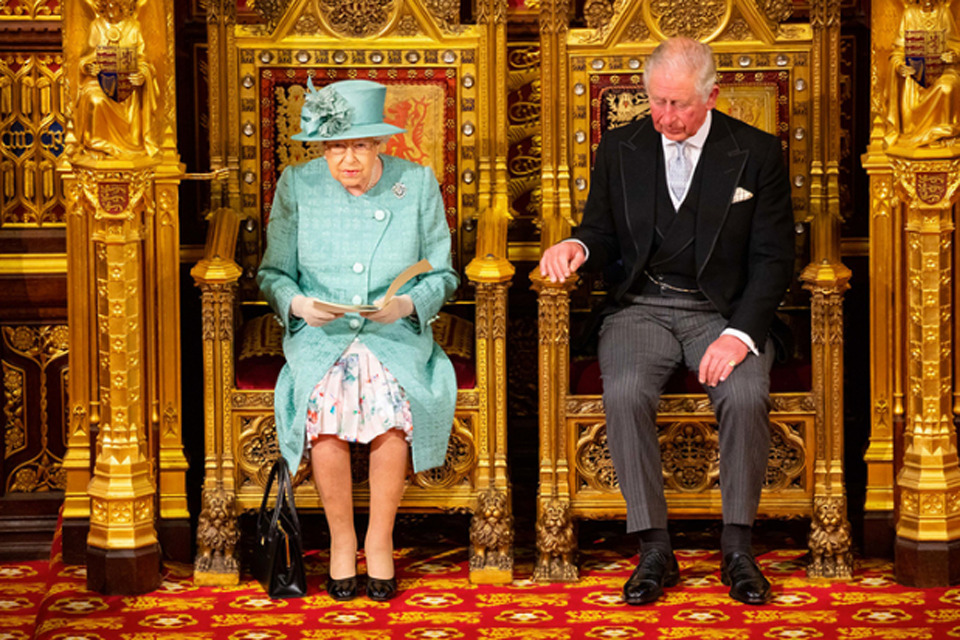Increases in offshore wind, support for carbon capture and storage (CCS) and investment in energy efficiency was promised within the Queen’s speech, with net zero remaining a key priority for Boris Johnson’s government.
These pledges form part of the Environment Bill, which has been reintroduced for the first time in 20 years, and is one of 30 bills in the speech, seven of which were focused on Brexit.
The energy promises within the accompanying document mirrored those made in the Conservative Party manifesto, with no new information about the newly elected government’s plans for the energy sector.
Dr Nina Skorupska CBE FEI, the chief executive of the REA said: “We are pleased to see the Environment Bill reintroduced. As Brexit certainty increases and the leaving date looms, it is more important than ever that we have stable, long-term and far-reaching environmental protections and standards in place.”
The bill includes pledges to increase offshore wind to 40GW by 2030, as well as a more vague promise to “enable new floating turbines”.
Commitment to the pursuit of nuclear fusion was clear, with the speech saying that the country would aim to deliver the world’s first commercially viable fusion power plant by 2040.
There was, however, a conspicuous lack of other renewable generation technologies mention, in particular solar power was notably absent.
Solar Trade Association chief executive Chris Hewett said they were looking forward to working with the government to “remove some of the most significant barriers to the expansion of renewables.”
“However, we were disappointed at the lack of mention of an Energy White Paper, which is long overdue. Urgent matters such as revising Ofgem’s remit to incorporate net zero, and lifting the effective ban on solar from government CfDs stand to delay private investment in the technology, at a time when the market is ready.
“The Committee on Climate Change has made it very clear that we need to see solar deployment levels rise substantially if we are to decarbonise the power sector and keep on track for net zero. 40GW by 2030 is now technically and economically feasible, but requires a robust policy framework to drive the investment needed to reach this. We will also need fair tax treatment for solar and energy storage in areas such as business rates, VAT and the Climate Change Levy.”
Energy efficiency will be invested in, with £9.2 billion promised for homes, schools and hospitals.
The Speech refers to many of the UK’s previous environmental achievements, including its 2050 net zero target, its generation record of 53% of electricity coming from low carbon sources, and the launch of the £400m Charging Infrastructure Investment Fund to aid with the uptake of electric vehicles.
Calling the UK a “global leader”, it says the country must continue to cement its role as such ahead of the UN Climate Change Summit in Glasgow in 2020 (COP26).
Dr Skorupska suggested that the speech should have gone further in its focus on decarbonisation.
“The importance of climate action within this Parliament cannot be underestimated. With the world’s attention focused on the UK in 2020, as we host COP 26 in Glasgow, it is disappointing that the Queen’s speech did not set out further ambitions around how we will decarbonise heat, transport and power.
“This Government will need to act quickly in 2020 to ensure renewables and clean technologies are at the forefront of all future growth in the UK.”
The speech also reiterated the Conservative pledge to increase investment in CCS, promising £800 million to build the first cluster by the mid-2020s. A further £500 million is pledges to energy intensive industry to help them to move to low-carbon techniques.
Energy UK interim chief executive, Audrey Gallacher, welcomed the commitment to delivering net zero, but emphasised the urgency of action.
“It is critical we take action now and avoid further delay so we urge the government to bring forward the energy White Paper as soon as possible to set out the clear policy framework that will allow the necessary investment and innovation to follow.
“This, along with a consistent and concerted effort across all government departments, will allow us to go further and faster in decarbonising our economy.
“The energy industry looks forward to working in partnership with Government, and other sectors and stakeholders, to deliver our shared ambition of delivering a net-zero economy but we must start urgently. There is no time to waste,” Gallacher said.
This call for urgency in the government’s actions is mirrored throughout the industry, along with the need for cross party collaboration to aim for net zero. This was emphasised in an open letter sent before the election as well, with 40 signatories hammering home the importance of tackling climate change.





